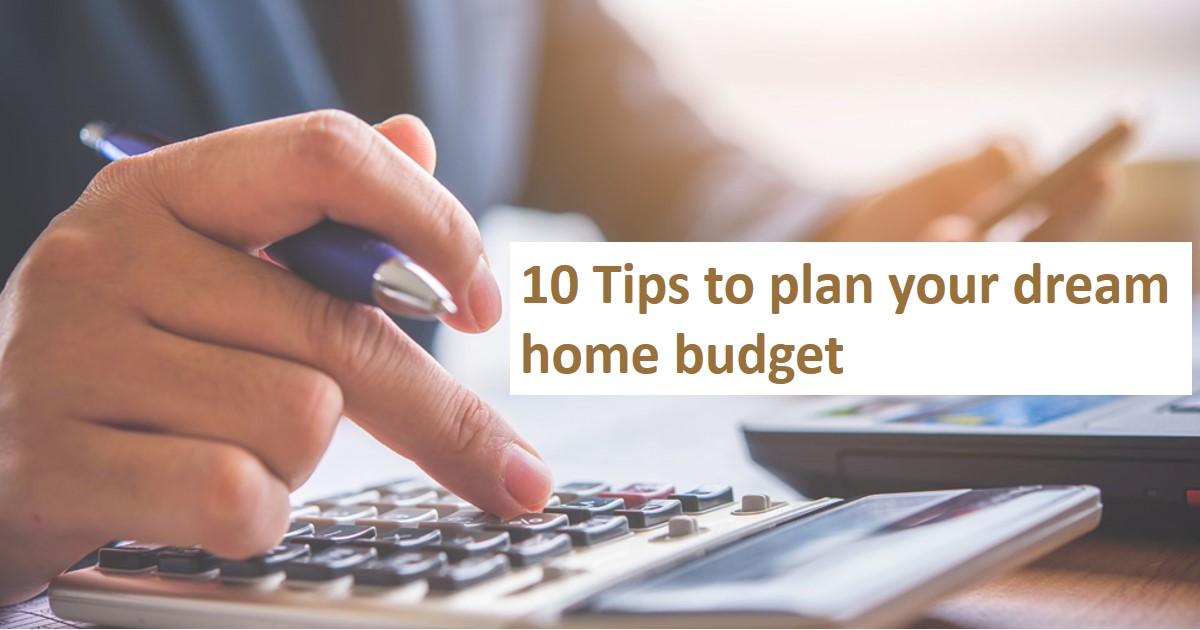Owning a dream home is more than just a transaction; it’s an investment in your future and a haven for cherished memories. This significant milestone requires thoughtful planning, especially when it comes to budgeting. The process demands a careful understanding of your financial landscape, a realistic assessment of affordability, and a clear roadmap for achieving your homeownership goals.
Embarking on the journey towards your dream home necessitates a deliberate approach to budgeting. At the core of this process lies the need to align your aspirations with financial prudence. Evaluating your financial health, determining affordability, and accounting for various costs associated with homeownership are crucial steps in this endeavor. By meticulously planning and making informed decisions, you can navigate the complexities of budgeting for your dream home with confidence and clarity.
Key Financial Factors in Homeownership
1. Assess Your Financial Health
Before embarking on the journey of buying a home, it’s crucial to take a comprehensive look at your finances. This includes evaluating your income, savings, investments, and any outstanding debts. Understanding your financial situation lays the groundwork for a realistic budget. Consider using budgeting tools or consulting with a financial advisor to get a clear picture.
2. Determine Affordability
The 28/36 rule acts as a guideline to assess how much of your income can comfortably go towards housing expenses. The 28/36 rule in real estate suggests spending no more than 28% of gross income on housing and 36% on total debt, guiding financial stability in property purchase and loan approvals. This includes not only the mortgage but also insurance, property taxes, and maintenance. By adhering to this rule, you can avoid overstretching your finances and ensure a more stable financial footing.
3. Factor in the Down Payment
Saving for a down payment is a significant aspect of home buying. While the traditional recommendation is 20%, various loan programs offer options with lower down payments, catering to different financial situations. Carefully consider your down payment options to minimize additional costs like PMI.
4. Account for Additional Costs
Beyond the down payment and mortgage, there are several additional expenses to consider. Closing costs, including loan origination fees, title insurance, and appraisal fees, can amount to a substantial sum. Property taxes, homeowners association fees, insurance, and ongoing maintenance costs should also be factored into your budget.
5. Get Pre-Approved for a Mortgage
Seeking pre-approval for a mortgage helps in understanding the loan amount for which you qualify. This step not only streamlines the home search but also provides a clearer idea of your budget constraints, enabling more targeted house hunting within your financial range.
6. Prioritize Your Needs vs. Wants
Creating a list of priorities for your dream home is crucial. Distinguish between must-have features and those that would be nice to have but are not essential. Being flexible on certain aspects can widen your options within your budget range and help in making practical decisions.
7. Research the Market
Real estate markets can vary widely based on location and trends. Research different neighbourhoods, their amenities, and property prices. Understanding market dynamics and having insights into upcoming developments or fluctuations in prices can assist in making informed decisions.
8. Consult Professionals
Engage with experienced real estate advisors. They offer invaluable insights into market trends, negotiations, mortgage rates, and tailored financial strategies. Their expertise can guide you through the complexities of the process, ensuring you make informed decisions aligned with your budget.
9. Plan for Future Expenses
Homeownership brings additional long-term financial responsibilities. Consider potential changes in income, future expenses (such as education, healthcare, or retirement), and any life events that might impact your financial situation. Ensure your budget allows for flexibility and adjustment.
10. Review and Adjust
Regularly reviewing your budget throughout the home-buying process is essential. Be prepared to adjust your plans if necessary, especially when faced with unexpected costs or changes in your financial circumstances. Flexibility and adaptability are key to staying within your means.
Balancing these financial aspects is crucial for a successful and sustainable home purchase, ensuring a solid foundation for your future financial well-being. Planning the budget for your dream home involves a blend of financial prudence and aspiration. Sunil Agrawal & Associates encourages a thorough understanding of your financial capabilities, market research, and careful consideration of future expenses. By following these steps, you can make informed decisions that align with your budget, ultimately turning your dream home into a tangible reality.
At Sunil Agrawal & Associates, we’re committed to helping you navigate the complexities of real estate. Connect with us to embark on this journey towards homeownership armed with the right knowledge and guidance.
Source: How to Plan Your Dream Home Budget: A Step-by-Step Guide


